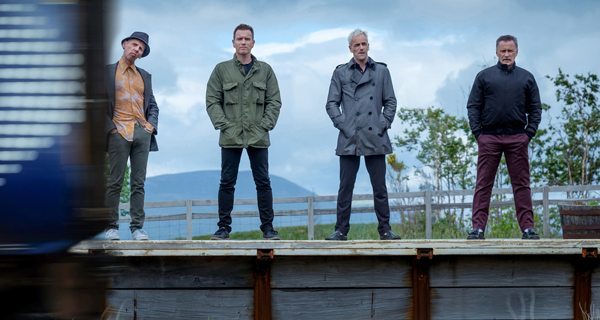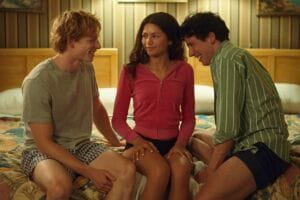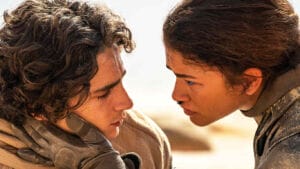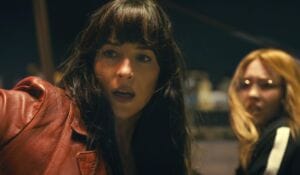Choose life. Choose entertainment. Choose movies. Choose sitting alone in a dark theater, watching art made by someone you don’t know. Choose movie reviews, so you know to only choose “T2 Trainspotting” if you’re a big fan of the original “Trainspotting”.
1996’s “Trainspotting” was a cultural phenomenon. The chaotic, arthouse-tinged black comedy stared unflinchingly into heroin addiction and captured the imaginations of many: movie lovers were blown away by its wild pacing and style; anyone who has ever made a harmful decision found it a non-judgmental mirror. It danced between ‘twisted fun’ and ‘hard to watch’ to the point of exhaustion, embodying the cycle of drug abuse to unforgettable effect.
It was based on a 1993 book of the same name, and the film adaption’s popularity led the author to pen a sequel in 2002. The awkwardly titled “T2 Trainspotting” is (very loosely) based on that follow-up novel and arrives 21 years after the first film. The lead-up to this movie sequel may be complicated, but it’s nothing compared to where the characters are now.
Sick Boy owns a bar but lives as a criminal with his reluctant girlfriend. Spud’s still a heroin junkie; Begbie’s in prison. All have children; all the families are broken. Nobody has seen Renton since he ran off with the thousands of pounds he stole from them twenty years ago — until he strolls into Edinburgh, looking like he’s cleaned up and shaking up the lives of everyone in the old gang.
From the first shot — which cleverly mirrors the opening shot of “Trainspotting” and then subverts it — it’s clear that “T2 Trainspotting” does not share its predecessor’s genre. While this sequel does retain some darkly comedic elements from the original, it’s largely a slow (by comparison) character drama. This transition takes time to get used to, but it works.
“Trainspotting” was a frenzied spiral into the ferocious fevers of drug abuse and youthful rebellion. The characters felt like pawns of the experience, submitting to impulses rather than making choices. In this film they’re older and dealing with the fallouts from their misadventures, necessitating intentional choice — thus Renton’s monologues about choice come to fruition. Screenwriter John Hodge, who also wrote the original, uses this genre development as a vehicle to continue character arcs in satisfying ways. Other than a tired Ewan McGregor, the cast is game with energetic performances, and each member of the main gang gets a chance to shine with emotional resonance.
That’s not to say all the character work is fine. Sick Boy’s girlfriend Veronika becomes a domineering presence: she is shoehorned into connecting with every major character and becomes such a driving force in the plot’s events that she sidelines the central friends. This would be an interesting direction if she weren’t written as little more than an attractive contrivance. The movie doesn’t stop treating Veronika like an object even as it hands itself over to her, so it’s hard to care about “T2 Trainspotting” as she grows in importance.
Director Danny Boyle injects the proceedings with the stop-and-go visual flair of the original. The flow between murky and stark is just as fluid as before and the tilted shots of Boyle’s later oeuvre pop up frequently. While his visual language is more at home in this world than in his other recent works (it was self-indulgent in “Steve Jobs”, that’s for sure), it doesn’t fit the new genre without issue. The frenetic direction was the proverbial foot to the pedal of the original’s insanity, but amid this character drama, it walks a line between welcome and distracting.
The nostalgia is quite welcome though. “T2 Trainspotting” has plenty of odes to “Trainspotting” without ever feeling self-obsessed, bringing back an impressive amount of locales, faces, and songs. Purpose, however, was lost along the way. The original was a lashing out against the crushing boredom and poverty of 90s Scotland. This film has one flash of brilliance when it denounces the social addiction of the modern era — Ewan McGregor even wakes up for this scene — but it fades away. It’s nice to see these guys again, but “T2 Trainspotting” is grasping for reasons to exist as desperately as they are.
★★★½ (3.5 out of 5)




